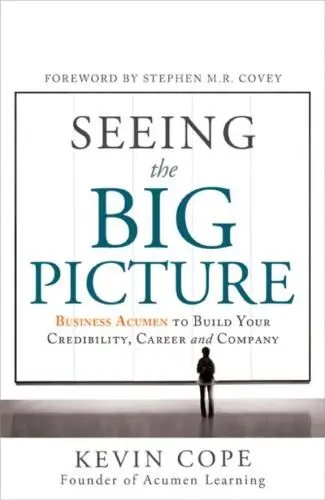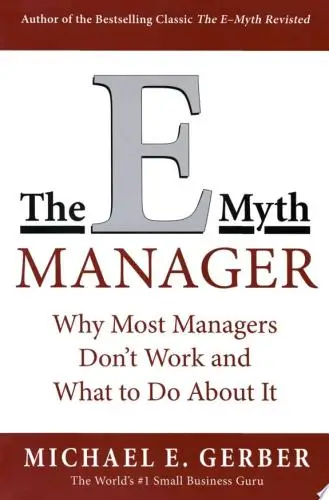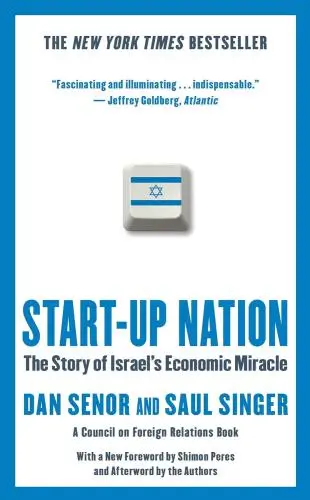Start-up Nation
The Story of Israel's Economic Miracle
What's it about?
Start-up Nation: The Story of Israel's Economic Miracle dives into the heart of how a small, resource-limited country became a global high-tech hub. It explores the cultural factors, innovative policies, and determined spirit that fuel Israel's extraordinary economic growth and technological advancements. Through compelling stories and analysis, the book provides insights into the entrepreneurial mindset and resilience that can inspire individuals and nations alike. A must-read for anyone interested in innovation, economics, or the dynamic forces shaping our world's future.
About the Author
Dan Senor is a writer, political advisor, and commentator known for his insights on foreign policy and national security. Co-author of "Start-Up Nation," he explores the economic and innovative prowess of Israel. His work often delves into geopolitical dynamics, offering a blend of analytical depth and practical perspectives.
10 Key Ideas of Start-up Nation
Embrace Failure as a Stepping Stone to Success
Understanding that failure is not the opposite of success but a part of the journey towards it is crucial.
In the start-up ecosystem, failures are viewed as learning opportunities that provide invaluable insights and experiences.
This mindset encourages risk-taking and innovation, as individuals are less afraid of making mistakes and more focused on exploring new ideas and solutions.
Learn DeeperEmbrace Reflective Learning: After a setback, take a moment to reflect on what happened. Ask yourself what went wrong, what could have been done differently, and what lessons can be learned. This turns failure into a learning opportunity.
Set Small, Achievable Goals: Break down your larger goals into smaller, manageable tasks. Celebrate the small victories along the way. This approach helps maintain motivation and resilience, even when faced with setbacks.
Cultivate a Supportive Network: Surround yourself with mentors, peers, and colleagues who understand the value of failure as a learning tool. A supportive network can provide encouragement, advice, and a fresh perspective when you're facing challenges.
Practice Resilience: Develop a personal mantra or mindset that helps you stay resilient in the face of failure. Remind yourself that every successful person has faced setbacks and that persistence is key.
Innovate and Experiment: Don't be afraid to try new approaches or unconventional methods. The fear of failure often stifolds innovation. Encourage yourself to experiment, knowing that each attempt provides valuable insights.
- Example
A software developer tries to launch a new app, but it receives poor reviews due to usability issues. Instead of giving up, they use the feedback to improve the app's design and functionality, eventually leading to a successful relaunch.
- Example
An entrepreneur's first business venture fails due to market misreading. They take the lessons learned about market research and customer needs to build a more targeted and successful second business.
Foster a Culture of Informality and Open Communication
Creating an environment where hierarchy does not hinder the free flow of ideas encourages creativity and collaboration.
An informal culture allows for easier communication across different levels of an organization, ensuring that good ideas are heard and considered regardless of their source.
This approach accelerates decision-making processes and enhances the adaptability of a company.
Learn DeeperEncourage Open Dialogue: Make it a point to regularly ask for feedback and ideas from all team members, regardless of their position. This could be through weekly meetings, suggestion boxes, or informal catch-ups.
Flatten the Hierarchy for Certain Discussions: While some level of hierarchy may be necessary for organizational structure, consider creating moments or spaces where that hierarchy is 'flattened'. This could mean roundtable discussions where everyone is encouraged to speak freely, or project teams where roles are based on expertise rather than rank.
Promote Cross-Departmental Collaboration: Organize projects or meetings that require members from different departments to work together. This not only fosters a culture of open communication but also encourages a broader understanding of the company.
Lead by Example: As a leader or influencer within your organization, openly share your thoughts, concerns, and praises. When leaders are transparent, it sets a precedent for the rest of the team to follow.
Implement an Open-Door Policy: Encourage leaders and managers to have an open-door policy, where team members feel comfortable approaching them with ideas, questions, or concerns at any time.
- Example
A tech startup implements 'Failure Fridays' where team members share mistakes or failures in a supportive environment, encouraging learning and openness without fear of judgment.
- Example
A marketing firm holds monthly 'Idea Lunches' where employees from all levels are invited to pitch new campaign ideas over a casual meal, fostering a sense of community and innovation.
Leverage Military Experience for Business Innovation
Military service, particularly in units that focus on technology and strategy, can provide unique skills and perspectives valuable in the business world.
Veterans often have experience in leadership, teamwork, and operating under pressure, which are transferable to managing and growing a start-up.
Additionally, the network and discipline gained from military service can significantly benefit entrepreneurial ventures.
Learn DeeperIdentify Transferable Skills: Reflect on your military experience and identify skills that are valuable in the business world. Leadership, teamwork, strategic thinking, and the ability to perform under pressure are all highly sought after in the entrepreneurial space.
Network with Fellow Veterans: Leverage your military network to connect with other veterans who have transitioned into the business world. They can provide guidance, mentorship, and potentially open doors for you.
Seek Out Veteran-Focused Business Resources: Many organizations and programs specifically support veterans in starting their own businesses. Look for incubators, grants, and training programs designed to leverage your unique skills and experiences.
Apply Military Discipline to Business Planning: Use the discipline and strategic planning skills honed in the military to meticulously plan your business venture. Set clear goals, timelines, and contingency plans.
Embrace Continuous Learning: The business world, especially in technology and innovation, is constantly evolving. Commit to lifelong learning to keep your skills and knowledge relevant.
- Example
A former military officer used their experience in logistics and operations to start a supply chain management company, applying the strategic planning and efficiency principles learned in the military to optimize their clients' supply chains.
- Example
A veteran who specialized in communications technology in the military co-founded a tech startup focused on developing secure communication platforms for businesses, leveraging their technical expertise and understanding of security protocols.
Implement Agile Development to Accelerate Growth
Adopting agile methodologies allows companies to be more flexible and responsive to changes in the market.
By focusing on iterative development, continuous feedback, and adapting products or services quickly, start-ups can better meet customer needs and stay ahead of competition.
This approach reduces the time and resources wasted on unviable projects and enhances the overall efficiency of the development process.
Learn DeeperStart Small and Iterate: Begin with a minimal viable product (MVP) that addresses the core need of your target market. Use customer feedback to make continuous improvements, rather than waiting to launch a perfect version.
Implement Regular Feedback Loops: Set up mechanisms to gather customer feedback regularly, such as surveys, user testing sessions, or direct customer interviews. Use this feedback to inform your development process and prioritize features or fixes.
Adopt Scrum or Kanban Frameworks: Choose an agile framework like Scrum or Kanban to organize your development process. These frameworks help in breaking down the work into manageable tasks and focusing on delivering incremental value.
Foster a Culture of Flexibility and Collaboration: Encourage your team to be open to changes and to collaborate closely. Agile development thrives in environments where team members can freely share ideas and adapt to new information.
- Example
A tech startup develops a basic version of their app that includes only the essential features needed to solve a specific problem for their users. They launch it to a small group of users to gather feedback, which they then use to make improvements and add new features in subsequent iterations.
- Example
An e-commerce company uses the Kanban framework to manage the development of their online platform. They have a visual board that tracks the progress of different tasks, allowing them to quickly adapt to changes in customer preferences by reprioritizing tasks based on real-time feedback.
Cultivate Strong Mentorship and Networking Opportunities
Building relationships with experienced mentors and industry professionals can provide start-ups with guidance, support, and access to valuable networks.
These connections can open doors to potential partnerships, funding opportunities, and insights into market trends.
A strong support system is essential for navigating the challenges of starting and scaling a business.
Learn DeeperIdentify Potential Mentors: Start by listing professionals in your field whom you admire. Look for individuals who have achieved goals similar to yours. Reach out to them via LinkedIn, email, or through mutual connections. Be clear about why you're seeking their mentorship and what you hope to learn.
Attend Industry Networking Events: Make it a point to attend relevant workshops, seminars, and meetups in your field. These are great opportunities to meet potential mentors and peers who can share valuable insights and experiences. Always follow up with the contacts you make, expressing your interest in learning from them.
Join Professional Groups or Online Communities: Many industries have professional groups or online forums where members share advice, opportunities, and support. Participating actively in these communities can help you build your network and find mentors who are willing to guide you.
Offer Value in Return: Remember that mentorship is a two-way street. Think about ways you can offer value to your mentors, perhaps by assisting them with research, offering your skills in a project, or providing insights into a market they are less familiar with.
- Example
Imagine you're an aspiring entrepreneur in the tech industry. You could reach out to a seasoned tech entrepreneur you've always admired by sending them a thoughtful LinkedIn message. Express your admiration for their work and ask if they'd be open to a brief chat about their journey. To prepare, you could read up on their career, noting specific achievements or challenges they faced, to ask informed questions and show genuine interest.
- Example
If you're interested in renewable energy, attending a renewable energy conference could be a great way to meet potential mentors. Before the event, research the speakers and panelists to identify those whose interests align with yours. During the conference, approach them during breaks or networking sessions, briefly introduce yourself and your passion for renewable energy, and express your interest in learning from their experience. Follow up after the event with a thank you note and a request for a follow-up meeting or call.
Deeper knowledge. Personal growth. Unlocked.
Unlock this book's key ideas and 15M+ more. Learn with quick, impactful summaries.
Read Full SummarySign up and read for free!
Start-up Nation Summary: Common Questions
"Israel's unofficial national motto could easily be 'ehyeh asher ehyeh' — 'I will be what I will be,' an attitude that embodies the spirit and culture of the start-up nation."
Start-up Nation by Dan Senor is a captivating exploration of how Israel, a small country with scarce resources and constant geopolitical challenges, has become a global innovation powerhouse. The book dives into the unique factors that have fostered Israel's entrepreneurial ecosystem, such as its mandatory military service instilling leadership and teamwork skills, strong government support for research and development, and a culture that embraces risk-taking and learning from failure.
Reading Start-up Nation left me in awe of Israel's ability to turn adversities into opportunities and build a thriving tech industry from virtually nothing. It reminded me of Malcolm Gladwell's Outliers in terms of uncovering the hidden dynamics behind success stories. If you're fascinated by entrepreneurship, innovation, or even geopolitics, this book is a must-read that will leave you inspired and thoughtful about what it takes to create a successful start-up ecosystem.
Experience Personalized Book Summaries, Today!
Discover a new way to gain knowledge, and save time.
Sign up for our 7-day trial now.
No Credit Card Needed

Similar Books

The Decision Book: 50 Models for Strategic Thinking
Mikael Krogerus
Emotional Intelligence at Work
Dalip Singh
Seeing the Big Picture
Kevin Cope
Leadership Is Concept Heavy
Dr. Enoch Antwi
Great by Choice
Jim Collins
The Leader′s Guide to Coaching in Schools
John Campbell
Preparing School Leaders for the 21st Century
Stephan Gerhard Huber
The E-Myth Manager
Michael E. Gerber
Leadership Is Language
L. David Marquet
The Founder's Dilemmas
Noam WassermanTrending Summaries

Peak
Anders Ericsson
Never Split the Difference
Chris Voss
Smart Brevity
Jim VandeHei
The Psychology of Money
Morgan Housel
The First 90 Days
Michael D. Watkins
Atomic Habits
James Clear
Thinking, Fast and Slow
Daniel Kahneman
The Body Keeps the Score
Bessel van der Kolk M.D.
The Power of Regret
Daniel H. Pink
The Compound Effect
Darren HardyNew Books

Forex Trading QuickStart Guide
Troy Noonan
Comprehensive Casebook of Cognitive Therapy
Frank M. Dattilio
The White Night of St. Petersburg
Michel (Prince of Greece)
Demystifying Climate Models
Andrew Gettelman
The Hobbit
J.R.R. Tolkien
The Decision Book
Mikael Krogerus
The Decision Book: 50 Models for Strategic Thinking
Mikael Krogerus
Fichte
Johann Gottlieb Fichte
Do No Harm
Henry Marsh

